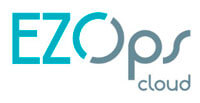In the world of databases, NoSQL has become a popular choice for developers and businesses alike. But what exactly is NoSQL, and how does it differ from traditional SQL databases? In this article, we’ll explore the fundamentals of NoSQL, its advantages, and when it might be the right choice for your next project.
What is NoSQL?
NoSQL, which stands for “not only SQL,” refers to a wide range of database technologies that were developed as a response to the limitations of traditional relational databases. Unlike SQL databases, which are based on a tabular schema with rows and columns, NoSQL databases are designed to handle unstructured, semi-structured, and structured data with more flexibility.
Types of NoSQL Databases
There are four main types of NoSQL databases: document-based, key-value stores, wide-column stores, and graph databases. Document-based databases like MongoDB store data in flexible, JSON-like documents, while key-value stores like Redis use a simple key-value lookup system. Wide-column stores such as Apache Cassandra are optimized for queries over large datasets, and graph databases like Neo4j are designed to represent and navigate relationships between data entities.
Advantages of NoSQL
One of the key advantages of NoSQL databases is their scalability. Many NoSQL databases are designed to be distributed across multiple servers, making them well-suited for handling large volumes of data and high traffic loads. Additionally, NoSQL databases are often more flexible than traditional SQL databases, allowing for easier schema changes and accommodating evolving data requirements.
When to Use NoSQL
NoSQL databases are particularly well-suited for use cases that involve large amounts of data, real-time applications, and scenarios where the data structure is likely to evolve over time. For example, social media platforms, IoT (Internet of Things) systems, and content management systems often benefit from the scalability and flexibility offered by NoSQL databases.
Considerations for Adoption
While NoSQL databases offer many advantages, it’s important to carefully consider whether they are the right choice for your specific use case. NoSQL databases may require a different approach to data modeling and querying compared to traditional SQL databases, and not all applications will benefit from the features that NoSQL databases provide. It’s essential to evaluate the specific requirements of your project before deciding whether to adopt a NoSQL solution.
Conclusion
NoSQL databases have revolutionized the way we store and manage data, offering a flexible and scalable alternative to traditional SQL databases. By understanding the types of NoSQL databases available and the advantages they provide, developers and businesses can make informed decisions about when to leverage NoSQL for their projects. Whether it’s handling massive amounts of data or powering real-time applications, NoSQL continues to play a vital role in the modern tech landscape.
